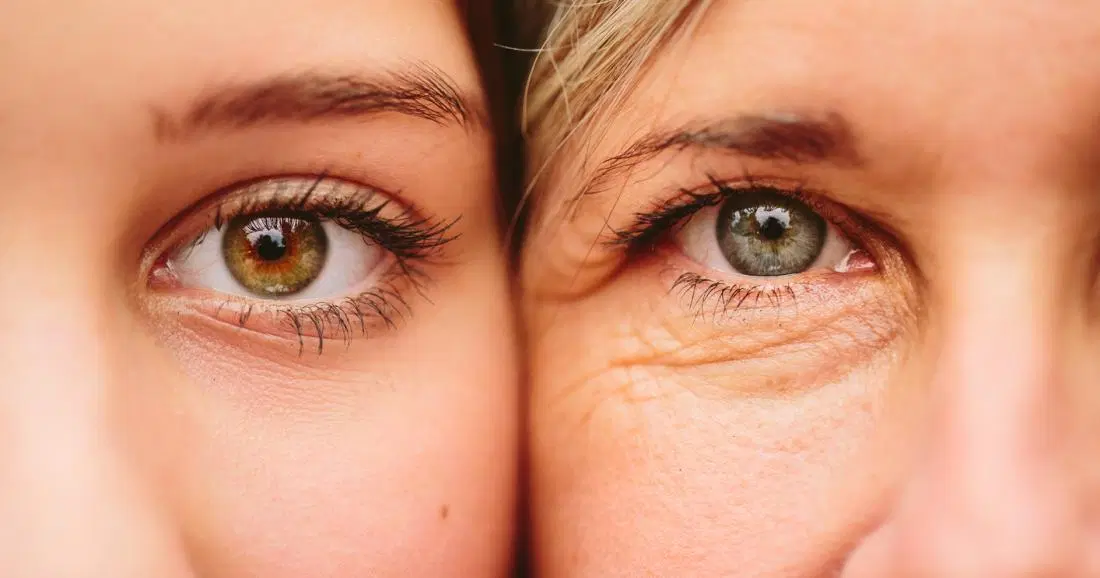anti-aging, beauty, health, Medicine, nutrition
Inflammation and Your Skin: The Holiday Edition
Inflammation and Your Skin: The Holiday Edition
Lets talk about inflammation and the effect that it can have on your skin. Inflammation is the process by which your body protects you from outside invaders. Sometimes, inflammation can be triggered by certain types of foods, and this causes your body to continually be in an inflammatory state. Chronic inflammation is an unhealthy state for the body to be in, and for some people, can also be caused by autoimmune disease. When your body is in an inflammatory state for an extended period of time, it can have a negative impact on your tissues and organs. Over time, studies suggest that your risk of a wide range of diseases—from asthma, cancers, cognitive decline, type 2 diabetes, rheumatoid arthritis, and more, can increase. Physical manifestations of chronic inflammation can be weight fluctuations, pain throughout the body, fatigue, gastrointestinal dysfunction and anxiety or depression.
 Today, we will focus on chronic inflammation caused by diet. There are many foods which can cause an inflammatory response in the body, and with the holidays right around the corner, sugar is huge culprit. In the Western world, and particularly here in the US, sugar is abundant during the last three months of the year, as sweet treats have become our method of celebrating everything from Halloween to Thanksgiving to Christmas. Alcohol and carbohydrate consumption also increases during these festivities, both of which our body breaks down into more sugar. There is an abundance of research to support that sugar creates inflammation in the body, and that this inflammation in turn wreaks havoc on the integrity of our skin.
Today, we will focus on chronic inflammation caused by diet. There are many foods which can cause an inflammatory response in the body, and with the holidays right around the corner, sugar is huge culprit. In the Western world, and particularly here in the US, sugar is abundant during the last three months of the year, as sweet treats have become our method of celebrating everything from Halloween to Thanksgiving to Christmas. Alcohol and carbohydrate consumption also increases during these festivities, both of which our body breaks down into more sugar. There is an abundance of research to support that sugar creates inflammation in the body, and that this inflammation in turn wreaks havoc on the integrity of our skin.
Our skin is the body’s largest organ, and when it becomes out of balance, we are confronted with a multitude of inflammatory manifestations, such as acne, premature signs of aging due to poor skin health, and even inflammatory medical conditions such as eczema, psoriasis, and rosacea. So, why does sugar age us? Sugar ages us because what keeps our skin looking soft and supple is collagen and elastin.
However, sugar molecules cause cross-linking of collagen, resulting in stiffening and loss of elasticity of our skin. In addition, as we increase our sugar intake, we also render our skin more sensitive to UV damage — thereby doubling the effects of damaging premature aging.
“The effect of sugars on aging skin is governed by the simple act of covalently cross-linking two collagen fibers, which renders both of them incapable of easy repair. Glucose and fructose link the amino acids present in the collagen and elastin that support the dermis, producing advanced glycation end products or “AGEs.” This process is accelerated in all body tissues when sugar is elevated and is further stimulated by ultraviolet light in the skin.” The effect on vascular, renal, retinal, coronary, and cutaneous tissues is being defined, as are methods of reducing the glycation load through careful diet and use of supplements.”

Although Halloween is all about the candy, try not to eat too many of the Reeses Cups from your kiddos’ trick-or-treat bag! I’m looking at you, mama bear! One treat is OK, but if you incorporate that sugar-filled candy into your daily diet long-term, you may be negating the benefits of your skincare routine. Remember, a true glow comes from within, and often, unbalanced skin is the manifestation of your body’s overall health. In 2021, we have so many more options than our parents and grandparents did in terms of healthier snack choices. For example, you can now find peanut butter cups made with unsweetened peanut butter, dark chocolate and healthier alternative sweeteners, such as Monkfruit or erythritol. These choices allow you to enjoy a sweet treat without the inflammatory side-effects of common sugar.
In closing, enjoy the holidays and try not to stress too much, as stress has also been linked to inflammation in the body! Just enjoy treats in moderation, or make some simple swaps in your baking or buying choices, to create a healthier alternative.

https://pubmed.ncbi.nlm.nih.gov/20620757
https://www.healthline.com/health/chronic-inflammation#the-bottom-line
https://www.medicalnewstoday.com/articles/326386#reducing-inflammation
https://www.sciencedaily.com/releases/2020/02/200218161720.htm


